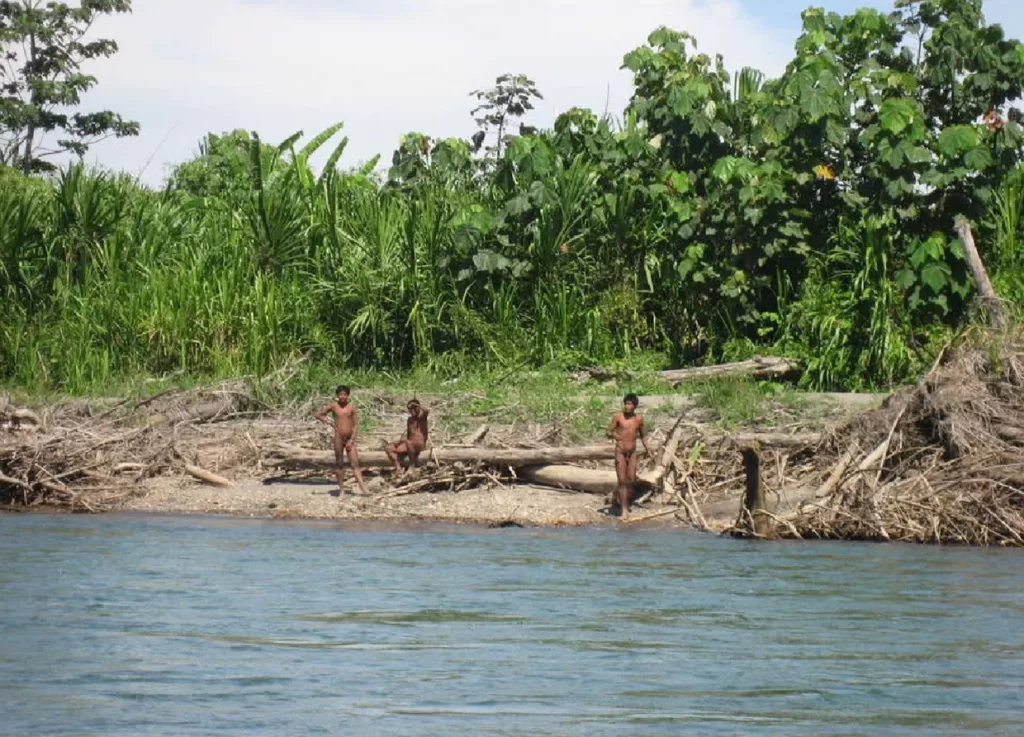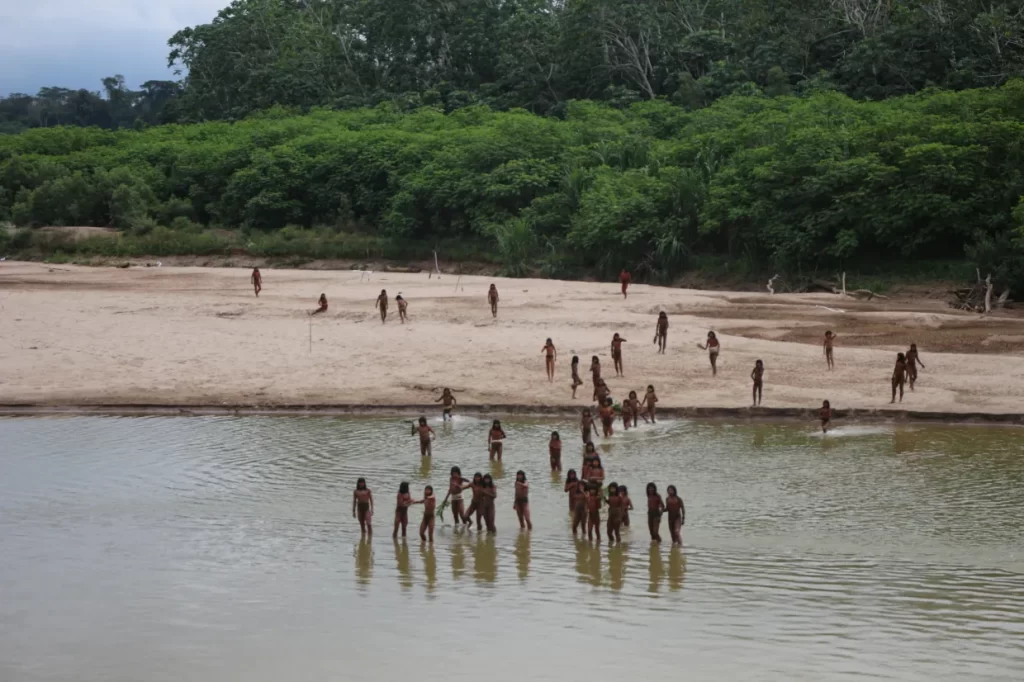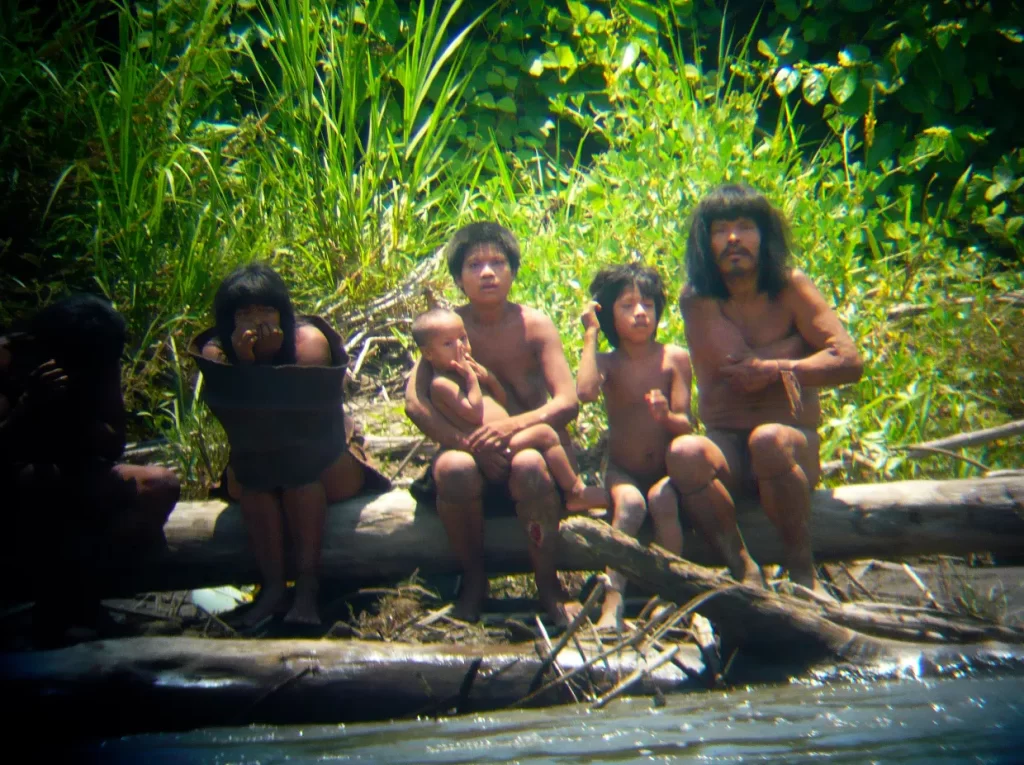A deadly encounter between members of an uncontacted indigenous tribe and loggers in Peru’s Amazon rainforest has resulted in two deaths and two disappearances, underscoring the ongoing tensions between isolated communities and outside encroachment.

The Mashco Piro people, believed to be one of the world’s largest isolated tribes, were involved in the incident that occurred on Thursday in the Madre de Dios region. According to Peru’s Ministry of Culture, which reported the clash on Monday night, two loggers were killed by arrows fired by tribe members while workers were opening a trail in the forest. Two other individuals remain missing, and one was injured.
This latest confrontation is not an isolated incident. The Ministry of Culture reports that at least four people, including workers and local residents, died between 2015 and 2022 in clashes with the Mashco Piro. The tribe, which inhabits an area between two natural reserves in Madre de Dios, rarely interacts with the outside world and has historically avoided contact.
The incident highlights the complex issues surrounding the protection of uncontacted tribes and the pressures they face from industrial activities in the Amazon. Several logging companies hold timber concessions inside the territory inhabited by the Mashco Piro. One such company, Canales Tahuamanu, has constructed over 120 miles of roads for its logging trucks to extract timber, according to the indigenous rights organization Survival International.

Canales Tahuamanu, which is certified by the Forest Stewardship Council, has rights to extract cedar and mahogany from 130,000 acres of forests in Madre de Dios. A company representative in Lima did not respond to requests for comment on the recent incident.
The Mashco Piro have been increasingly sighted outside their traditional territory in recent months. On June 28, the Peruvian government reported that local residents had seen tribe members along the Las Piedras river, 93 miles from Puerto Maldonado, the capital of Madre de Dios.
These sightings extend beyond Peru’s borders. Rosa Padilha, from the Brazilian Catholic bishops’ Indigenous Missionary Council in the state of Acre, reported that the Mashco Piro have been observed in Brazil. “They flee from loggers on the Peruvian side,” Padilha said. “At this time of the year, they appear on the beaches to take Amazon turtle eggs. That’s when we find their footprints on the sand. They leave behind a lot of turtle shells.”

Padilha described the Mashco Piro as “a people with no peace, restless, because they are always on the run,” highlighting the precarious existence of uncontacted tribes in the face of external pressures.
Survival International estimates that there are over 100 uncontacted tribes worldwide, many facing extinction due to habitat destruction by outsiders. The organization warns that the Peruvian government has yet to formally recognize certain indigenous domains crucial for these tribes’ survival.
The risks associated with contact between uncontacted tribes and outsiders extend beyond violent confrontations. Exposure to new infections can be fatal for isolated peoples who lack immunity to common diseases.
As investigations into the recent clash continue, involving the Ministry of Culture, the prosecutor’s office, and local law enforcement, the incident serves as a stark reminder of the ongoing challenges in balancing economic development, resource extraction, and the protection of indigenous rights and lives in the Amazon rainforest.



